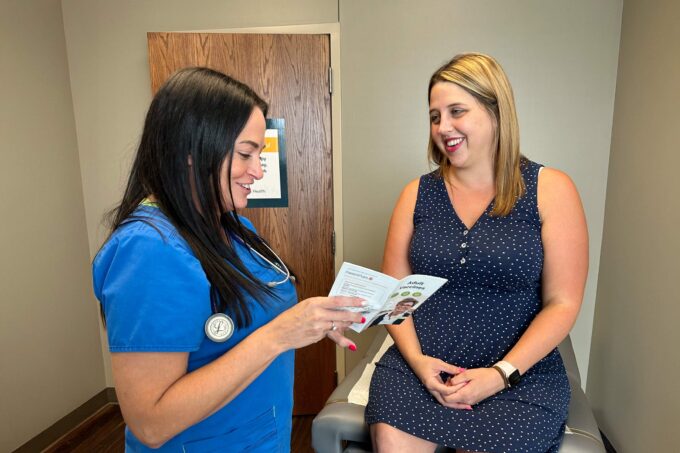- Health Education
- April 5, 2022
Are You Getting A Good Night’s Sleep?
Do you still feel tired in the morning after sleeping through the night? Chances are you aren’t actually getting a good night’s sleep. A third of U.S. adults ages 18-60
10 min read

Do you still feel tired in the morning after sleeping through the night? Chances are you aren’t actually getting a good night’s sleep. A third of U.S. adults ages 18-60 report getting less than the recommended seven or more hours of sleep each night, according to the Centers for Disease Control and Prevention. Not getting enough sleep or experiencing poor quality of sleep can affect your overall health and well-being. Understanding how sleep can affect all aspects of daily living and developing better sleep habits will go a long way in improving your quality of life.
Recommended Hours of Sleep for Adults
The number of hours of sleep your body requires will change during different stages of life. For adults, the recommendations are broken down as follows:
- 18 – 60 years: 7 or more hours per night
- 61 – 64 years: 7-9 hours
- 65 years+ : 7-8 hours
In some cases, you may be getting the recommended hours of sleep. However, the quality of sleep may be the bigger factor. Let’s look at what may be contributing to poor sleep quality.
Signs of Poor Sleep Quality
There are a number of factors that can be signaling that you are not sleeping well at night.
- Not feeling rested after a full night’s sleep
- Waking up during the night several times
- Snoring or hearing a partner’s snoring
- Gasping for air or feeling a choking sensation
- Stress from work and daily worries
- Consuming caffeinated or alcohol drinks in the evening can cause you to wake up
- Some medications can keep you awake
- Menopause symptoms
- Chronic conditions that cause pain and discomfort while lying down
Any or a combination of these factors could be directly affecting the quality of sleep that you are getting, or lack thereof. Interrupted sleep patterns can leave you feeling tired and cranky, and have less ability to concentrate throughout the day.
- Poor quality of sleep may be signaling more serious sleep disorders, such as:
- Insomnia – having difficulty getting to sleep or staying asleep
- Narcolepsy – excessive daytime drowsiness and sudden attacks of sleep
- Restless Leg Syndrome – unpleasant twitching sensation in the leg muscles when sitting or lying down
- Sleep Apnea – breathing repeatedly stops and starts while sleeping; common with people who snore loudly
Insufficient sleep can lead to other chronic health conditions, such as type 2 diabetes, cardiovascular disease, obesity, and depression. If you think you or a loved one may be experiencing one of these sleep disorders, talk with your healthcare provider about receiving a medical evaluation.
Tips to Getting Better Sleep
Developing good sleep habits can improve your sleep health. Follow these tips
- Keep regular sleep times by going to bed at the same time each night and getting up at the same time the next morning
- Make your bedroom a quiet and relaxing space that can be kept dark if you need to sleep during daytime hours
- Set your thermostat to a cooler temperature at night
- Try not to eat full meals late in the evening
- Limit caffeine or alcohol a few hours before going to sleep
- Exercise or be physically active during the day to help you fall asleep at night
- Turn off electronic devices earlier
Implementing some or all of these tips can be the first steps toward developing better sleep habits and feeling more rested and energized. The providers at Bluestem Health Piedmont Clinic can work with you to monitor any health conditions that you may have that could lead to or be a result of more serious sleep disorders. Call to set up an evaluation at (402) 480-7380.
Continue reading

- Health & Wellness
- March 19, 2025
Food Connects Us and Shapes Every Stage of Life
Healthy eating is vital at every stage of life. By making mindful food choices and fostering a culture of healthy eating, you can improve your overall well-being and build a foundation for a healthier future.

- Family Medicine
- March 19, 2025
Comprehensive Family Healthcare: Why Bluestem Health is the Right Choice
At Bluestem Health, we make it easy for you to find the right healthcare provider. We’re here to provide comprehensive family healthcare that fits your needs.

- Family Medicine
- February 18, 2025
Managing Influenza and Other Winter Illnesses
Michael Israel, MD, at Bluestem Health, shares the importance and benefits of timely treatment of winter illnesses for families.
